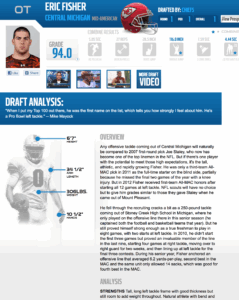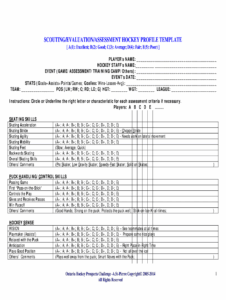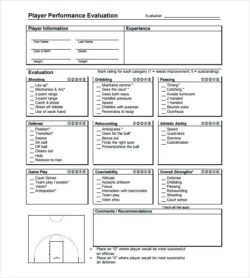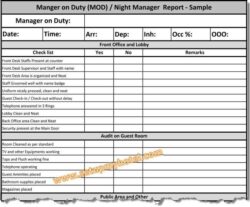Football, the beautiful game, captivates millions around the globe with its unpredictable drama, stunning skill, and thrilling finishes. For many, simply watching a match unfold is a joy, a shared experience that brings people together. But for those who want to delve deeper, to understand the tactical battles, player performances, and underlying narratives that shape each game, a more structured approach can unlock a whole new level of appreciation.
Going beyond the surface-level observation can transform your viewing experience, whether you are a dedicated fan, an aspiring analyst, a fantasy football manager, or someone looking to make more informed predictions. It’s about moving from passive consumption to active engagement, dissecting the moments that truly matter and understanding the ‘why’ behind the ‘what.’ This is where a clear, consistent framework becomes invaluable.
This article will guide you through the process of developing an effective daily football match analysis report template, a tool designed to help you systematically evaluate games, track key data points, and derive meaningful insights. It’s about empowering you to become your own expert, building a comprehensive understanding of teams and players that goes far beyond the scoreline.
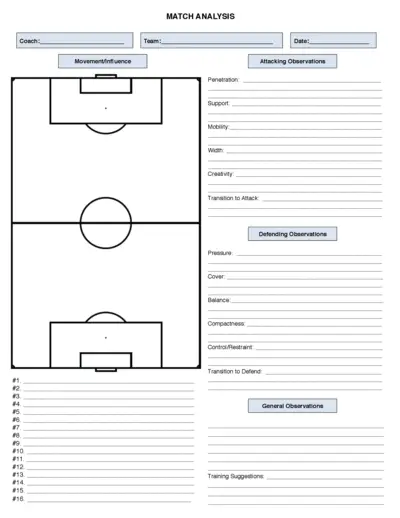
Why a Structured Analysis Template Matters
Engaging with football on a deeper level requires more than just keen observation; it demands structure and consistency. A well-designed analysis template brings a systematic approach to your match viewing, helping you to identify patterns, track performance over time, and build a more objective understanding of the game. It moves you away from relying solely on memory or fleeting impressions, providing a tangible record of your observations and deductions. This consistency is crucial for anyone serious about improving their analytical skills or making data-driven decisions, whether for betting, fantasy leagues, or simply personal enjoyment.
One of the greatest benefits of utilizing a template is its ability to help you overcome inherent biases. When we watch a game, our emotions, pre-conceived notions, or even allegiances can influence our perception. A template encourages you to record specific data points and observations, forcing a more objective look at events. By systematically documenting various aspects of a match, you create a factual foundation for your analysis, allowing you to draw conclusions based on evidence rather than feeling. This approach not only sharpens your analytical eye but also builds a reliable historical record for future reference.
Creating a robust daily football match analysis report template involves segmenting the game into manageable, analyzable components. This typically starts even before kick-off and extends well after the final whistle, ensuring a holistic perspective.
Key Components of Your Daily Report
- Match Details: This is your foundational information. Log the date, competing teams, league or competition, and kick-off time. You might also include the venue and referee.
- Pre-Match Analysis: Dive into the context before the game starts. What is each team’s recent form? Are there any significant injuries or suspensions? What are their typical tactical setups? What does their head-to-head record suggest? Understanding the backdrop is vital for interpreting the match itself.
- In-Match Observations: This is where you track the unfolding drama. Note key events like goals, assists, cards, and substitutions. Pay close attention to tactical shifts, player performances (both positive and negative), possession trends, pressing intensity, and any noticeable patterns of play.
- Post-Match Review: Once the final whistle blows, reflect on how the match played out versus your expectations. Analyze goal concessions and scoring patterns. Did tactical decisions pay off? How did individual players perform against what was anticipated?
- Key Takeaways & Future Predictions: Summarize the most important insights from the match. What did you learn about the teams or players? How might this affect their next game or their season trajectory? This section is crucial for transforming raw data into actionable knowledge.
Pre-match analysis is your gateway to understanding potential narratives. By researching team form, squad news, and historical matchups, you’re not just guessing; you’re building a foundation of informed expectations. This setup allows you to test your hypotheses during the match and refine your understanding of how different factors influence game outcomes. A well-prepared analyst goes into a match with a series of questions, and the daily football match analysis report template helps them systematically find the answers.
During the match, your template becomes a live canvas. It’s not just about noting down who scored; it’s about observing the sequences leading to chances, the effectiveness of a team’s pressing scheme, or how a particular player manages the midfield. These details, meticulously logged, contribute to a richer understanding of team dynamics and individual contributions. Post-match, the review phase allows for critical reflection, comparing your initial predictions with the actual events, thereby honing your analytical foresight for future games.
Building Your Personalized Daily Football Match Analysis Report Template
Crafting your own template is a highly personal journey. There isn’t a single “perfect” daily football match analysis report template that suits everyone, because what you prioritize in your analysis depends entirely on your goals. Are you focused on player statistics for fantasy football? Are you tracking tactical trends for coaching insights? Or perhaps you’re building a database for betting predictions? Begin by outlining your primary objectives. This clarity will help you decide which data points are most relevant and which sections need the most detail. Don’t be afraid to start simply and gradually add complexity as you become more comfortable and discover what truly adds value to your analysis.
When it comes to the practical aspects of building your template, you have several options. Many analysts find a simple spreadsheet program like Excel or Google Sheets to be incredibly versatile. It allows for easy organization into columns and rows, making it straightforward to track various metrics for multiple matches. Alternatively, a document editor like Microsoft Word or Google Docs can work well if your analysis relies more heavily on narrative descriptions and less on quantitative data. The key is to choose a tool that you find intuitive and accessible, ensuring that the process of filling out your template doesn’t become a chore.
The most effective templates are not static; they evolve over time. After using your template for a few weeks or months, take some time to review its effectiveness. Are there sections you consistently leave blank? Are there crucial pieces of information you find yourself wanting to add but haven’t included? Don’t hesitate to refine, remove, or expand elements as needed. This iterative process of refinement ensures that your daily football match analysis report template remains a relevant and powerful tool, continuously adapting to your growing expertise and changing analytical needs.
- Start Simple: Don’t overload your initial template with too many fields. Begin with the essentials and expand gradually.
- Be Consistent: Regular use is key. Make it a habit to fill out your template for every match you analyze.
- Review and Refine: Periodically assess if your template is meeting your analytical goals and adjust accordingly.
- Focus on Your Goals: Tailor the template specifically to what you want to achieve from your analysis.
- Use Reliable Data Sources: Supplement your observations with credible statistics and news from reputable sports outlets.
By consistently applying a structured approach to your football analysis, you move beyond just watching a game to truly understanding it. This method elevates your engagement with the sport, transforming casual viewing into an insightful and deeply rewarding experience. You’ll begin to notice nuances and patterns that were once invisible, enriching your appreciation for the tactical genius, athletic prowess, and sheer unpredictability that define football.
Embrace the journey of becoming a more discerning football observer. Invest the time in building and refining your personal analysis framework, and you’ll find that every match becomes an opportunity for deeper learning and greater enjoyment. The insights you gain will not only enhance your personal understanding but also equip you to engage in more informed discussions about the beautiful game.
